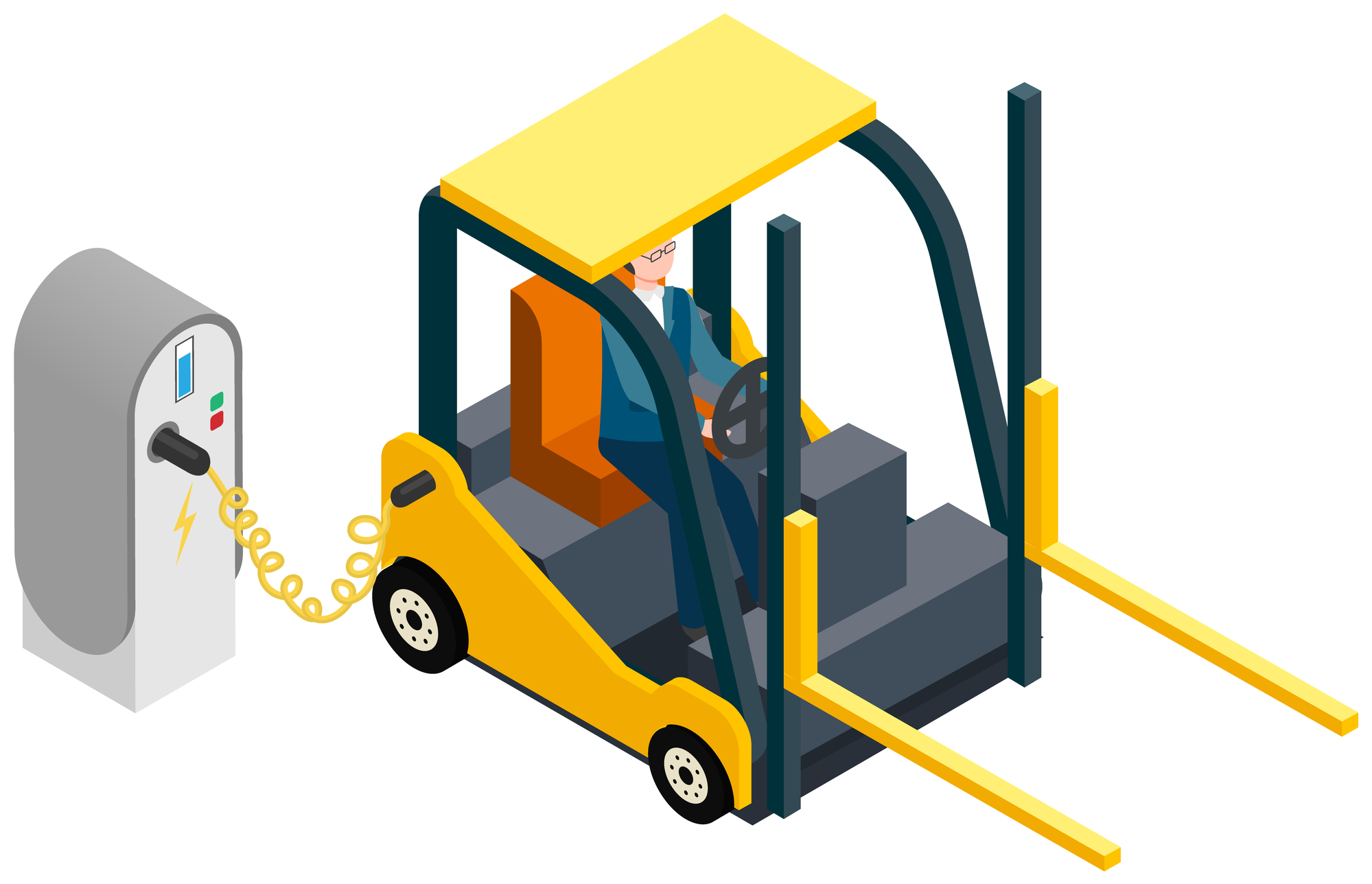The Pros and Cons of an Electric Forklift
01/22/2021
CITrucks
The electric forklift is booming in popularity, but does it suit your needs? We lay out the pros and cons to help you make an informed decision.
Are you wondering if you should make the switch to an electric forklift? Many other electric vehicles have seen improvements in their engineering to the point they can be as reliable as gas guzzlers. But can the same be said for forklifts?
Will it be able to survive the strain of moving heavy items around a site all day? Could the battery run out while you're in the middle of an important job? What backup plans do you need to put in place if one of these scenarios arise?
Depending on the industry you're in, an electric forklift can bring many financial and environmental benefits. However, it's not the ideal solution for every company or situation. If you're in the market for a new forklift, you should weigh up these pros and cons, so you're not left in shock by your decision.
Pros of an Electric Forklift
There are many benefits of an electric forklift that are identical to other vehicles, such as being quiet and producing zero emissions while it's in operations. But some advantages are unique to forklifts you might not have considered.
No Exhaust Fumes
Not only do electric forklifts produce zero emissions, but they also don't create any harmful fumes like their LPG and diesel counterparts. This feature makes them perfect for indoor use, especially around items like food that are sensitive to pollution. It's also better for other workers as they won't be breathing in anything harmful.
Less Maintenance
With no engine or transmission, electric forklifts don't require a lot of maintenance like their fuel counterparts. The main components you'll need to service is the moving components, drive motors, and the battery. The servicing intervals are significantly longer too, which means less interruption to your day-to-day operations.
Better Rear Visibility
Electric forklifts don't have an LP tank sitting on the back of the vehicle. In fact, nothing is taking up space or blocking your view from the rear, much to the delight of safety inspectors. Instead, the battery sits underneath the operator seat to counterweight the forklift allowing you to have full 360-degree visibility when you need it.
Other Electric Forklift Advantages
There are plenty of other reasons to consider making the switch to an electric forklift. Some of the most popular reasons businesses have picked one up include:
- Lift capacities can reach up to 40,000 lbs.
- There's no requirement for fuel storage as you only need space for a charging station
- Electricity costs are significantly lower than fuel prices
- Automatic braking models help reduce wear and tear on the vehicle
- No requirements to replace or dispose of harmful chemicals such as engine oil or coolant fluids
- It has a long lifespan of approximately 15,000 hours compared to 12,000 for gas models
- Electric forklifts have a faster acceleration due to there being no lag time in getting power to the wheels
- The chassis is often smaller - which improves turning into tight spaces and reducing the risk of damage to the surroundings
Cons of an Electric Forklift
While there are some advantages of purchasing an electric forklift, there are some other considerations you'll need to weigh up before you make a final decision. In the long run, it may end up costing you more money than it's worth.
Higher Upfront Costs
The first obstacle you'll face is the cost of an electric forklift. It is significantly more expensive compared to a diesel, gas, or LPG vehicle. So, you'll need to decide whether the upfront costs will still be worth it in the future and if the savings on maintenance are worthwhile.
Flat Batteries
If your warehouse or job site has multi-shift operations, then an electric forklift might not be able to go to the yards required. Traditional batteries need eight hours to charge and then an additional eight to cool down. Lithium-ion can utilize opportunity charging, but this requires cooperation from all staff to maximize performance and lifespans.
Not Suitable for All Environments
Even though electric forklifts are great for the environment, they cannot handle certain types of climates. If it's too hot, then there is a higher chance of the battery overheating. If it's raining, then the water can cause significant damage if it's not properly sealed.
Other Electric Forklift Disadvantages
Even though electric forklifts have come a long way in their development, they're still not at the point of completely replacing the alternative. Some other issues you may get confronted with include:
- You'll need designated places to install charging stations
- Your facility may not be able to supply the necessary voltage requirements
- Special lifts might be necessary for heavier battery models
- Multiple variables can impact the battery lifespan
- Replacement batteries can be pricey, but will last five to seven years
- The battery charging process can emit flammable fumes, which is not ideal for all worksites
- It's not ideal for use in cold storage environments such as freezers as the moisture and condensation can damage the electrical components
Get Yourself the Best Electric Forklift
Deciding on whether to go with an electric forklift comes down to how you use it and the type of application you're in. While the electric alternative has come a long way, it still has room to improve before it becomes the only solution for your forklift needs.
If you're looking for an electric forklift, then you should stop by our dealerships. We offer models from Hyundai, Komatsu, and Unicarriers, and provide parts or service when you need it. Take a look at our forklift range today and find out how we can lift your business to the next level.





